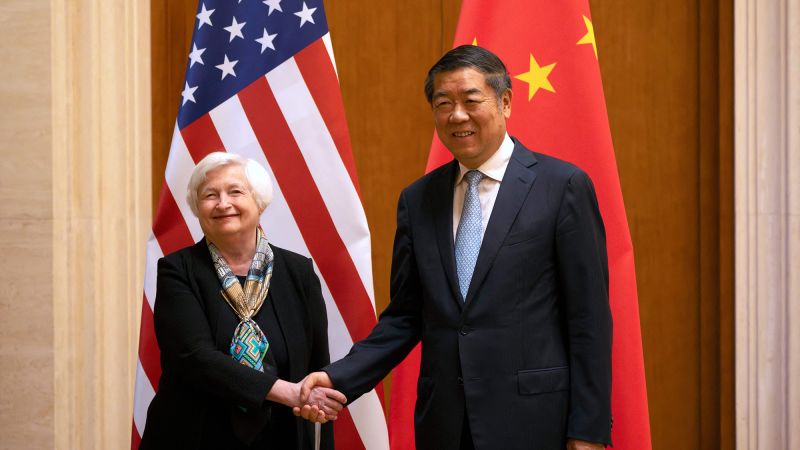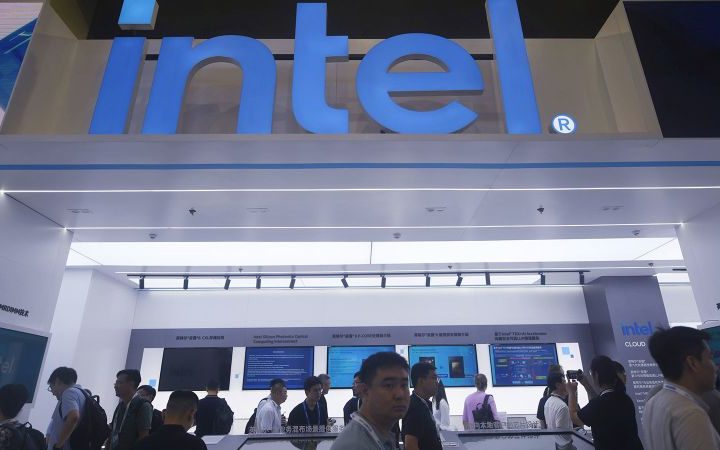Editor’s Note: Sign up for CNN’s Meanwhile in China newsletter which explores what you need to know about the country’s rise and how it impacts the world.
US Treasury Secretary Janet Yellen will meet Chinese Vice Premier He Lifeng to discuss the bilateral relationship between the world’s two largest economies and other global issues over two days starting Thursday.
Yellen’s talks with China’s new economic tsar will set the stage for the high-stakes potential meeting expected between US President Joe Biden and Chinese President Xi Jinping next week during the Asia-Pacific Economic Cooperation forum in San Francisco. The United States is the host for this year’s summit, which is an annual gathering of top leaders in government and business of the 21 economies in the Pacific Rim.
The United States is the host for this year’s summit, which is an annual gathering of top leaders in government and business of the 21 economies in the Pacific Rim.
US-China relations have improved in recent months after tensions between the two countries flared early in the year. US and Chinese officials are seeking to shore up diplomatic ties and cooperation on economic issues. That’s on the backdrop of a sputtering global economy and ongoing geopolitical strain in other parts of the world.
Yellen last saw He in Beijing in July — the second visit by a US cabinet official to the Chinese capital in a matter of weeks as Washington sought to steer relations back on course.
In total, Washington has sent four cabinet officials to Beijing since the summer, including Secretary of State Antony Blinken, climate envoy John Kerry and Commerce Secretary Gina Raimondo.
Beijing has also sent its top diplomat, Chinese Foreign Minister Wang Yi, to the US capital.
The flurry of diplomatic activity appears to have helped stabilized ties between the two sides, which had been at odds over a range of issues including constraints on US investments in advanced technology in China and newly expanded curbs on the kinds of semiconductors that American firms are able to sell there.
“Neither Biden nor Xi wants things to deteriorate any further and I think both sides recognize that in this challenging and volatile moment globally, having better stability in US-China relations benefits both nations and the world,” said Mattie Bekink, the Shanghai-based China director of the Economist Intelligence Corporate Network.
“This does not mean that tensions are over,” she added. “To the contrary, there seems to be more candor about where and why challenges remain while seeking alignment or at least a framework for engagement where possible — trade and investment, climate change.”
Earlier this year, Yellen outlined three principles guiding the US relationship with China: prioritizing national security and defending human rights, promoting a healthy and fair economic relationship with China and cooperating with China to address global issues.
Yellen last week at an event in Washington said, “the United States does not seek to decouple from China,” but said that the United States is trying to “ensure that our country’s economic security is not reliant on just one country for many critical inputs.” That country is China, she said.
“We know that the US-China relationship is among the most consequential in the world and we need to get it right for Americans and for people around the world,” Yellen said. “The separation of our economies, or an approach in which countries, including those in the Indo-Pacific, are forced to take sides, would have significant negative global repercussions. We have no interest in such a divided world and its disastrous effects.”
US officials are trying to delicately mend the nation’s relationship with China by remaining steadfast on national security and human rights, but not giving the impression that it is trying to actively undermine China’s economic future.
The Treasury Department is in charge of turning the Biden administration’s August executive order — which limits US investment in China’s artificial intelligence, quantum computing and semiconductor industries — into guidelines expected to take effect next year.
US officials have said the restrictions were intended to prevent US capital from aiding China’s military — not to hurt China’s economy. But American investors have told CNN that the rules were seen as a “major blow” to the US venture capital industry.
Meanwhile, China has been trying to pull itself out of a deep economic slump marked by high youth unemployment and a sluggish real estate market through stimulus measures. The International Monetary Fund recently upgraded its forecast for China’s economic growth based on Beijing’s policies aimed at propping up the country’s ailing property sector.
Read the full article here







